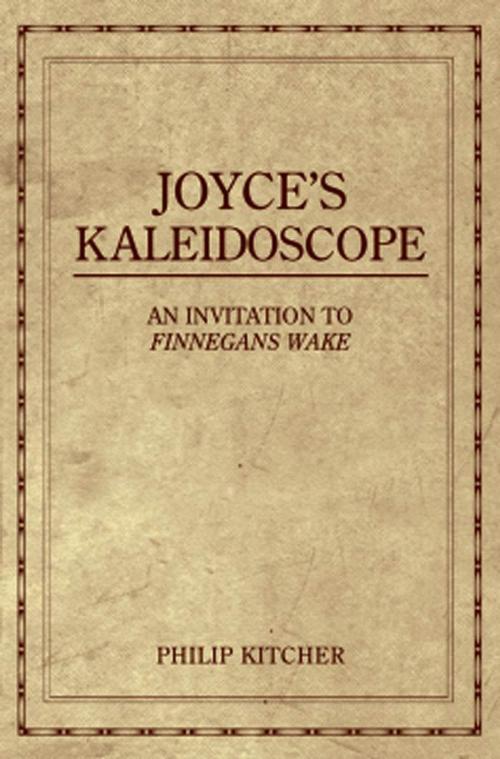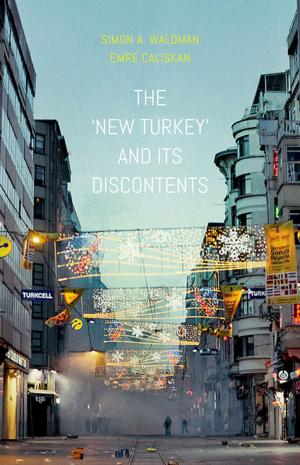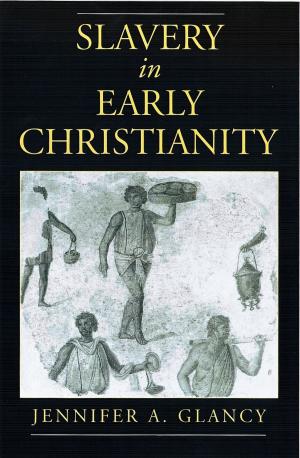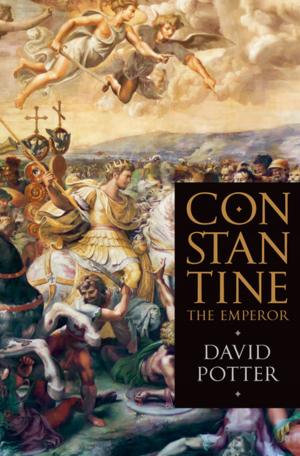Joyce's Kaleidoscope
An Invitation to Finnegans Wake
Fiction & Literature, Literary Theory & Criticism, British| Author: | Philip Kitcher | ISBN: | 9780199886500 |
| Publisher: | Oxford University Press | Publication: | April 3, 2009 |
| Imprint: | Oxford University Press | Language: | English |
| Author: | Philip Kitcher |
| ISBN: | 9780199886500 |
| Publisher: | Oxford University Press |
| Publication: | April 3, 2009 |
| Imprint: | Oxford University Press |
| Language: | English |
James Joyce's Ulysses, once regarded as obscure and obscene, is now viewed as one of the masterpieces of world literature. Yet Joyce's final novel, Finnegans Wake, to which he devoted seventeen years, remains virtually unread, except by scholarly specialists. Its linguistic novelties, apparently based on an immense learning that few can share, make it appear impenetrable. Joyce's Kaleidoscope attempts to dissolve the darkness and to invite lovers of literature to engage with Finnegans Wake. Philip Kitcher proposes that the Wake has at its core an age-old philosophical question, "What makes a life worth living?", and that Joyce explores that question from the perspective of someone who feels that a long life is now ending. So the complex dream language is a way of investigating issues that are hard to face directly; the reader is invited to struggle with the novel's aging dreamer who seeks reassurance about the worth of what he has done and been. Joyce finds his way to reassurance. The sweeping music and the high comedy of Finnegans Wake celebrate the ordinary doings of ordinary people. With great humanity and a distinctive brand of humanism, Joyce points us to the things that matter in our lives. His final novel is a festival of life itself. From this perspective, the supposedly opaque, or nonsensical, language opens up as a rich source for the reader's reflections: though readers won't all approach it the same way, or with the same set of references, there is meaning in it for everyone. Kitcher's detailed study of the entire text brings out its musical resonances and its musical structures. It analyzes the novel overall while bringing deep insight to the reading of key individual passages. This engaging guide will aid readers not just to make sense of the novel, but to relish the remarkable accomplishment of Joyce's least appreciated work.
James Joyce's Ulysses, once regarded as obscure and obscene, is now viewed as one of the masterpieces of world literature. Yet Joyce's final novel, Finnegans Wake, to which he devoted seventeen years, remains virtually unread, except by scholarly specialists. Its linguistic novelties, apparently based on an immense learning that few can share, make it appear impenetrable. Joyce's Kaleidoscope attempts to dissolve the darkness and to invite lovers of literature to engage with Finnegans Wake. Philip Kitcher proposes that the Wake has at its core an age-old philosophical question, "What makes a life worth living?", and that Joyce explores that question from the perspective of someone who feels that a long life is now ending. So the complex dream language is a way of investigating issues that are hard to face directly; the reader is invited to struggle with the novel's aging dreamer who seeks reassurance about the worth of what he has done and been. Joyce finds his way to reassurance. The sweeping music and the high comedy of Finnegans Wake celebrate the ordinary doings of ordinary people. With great humanity and a distinctive brand of humanism, Joyce points us to the things that matter in our lives. His final novel is a festival of life itself. From this perspective, the supposedly opaque, or nonsensical, language opens up as a rich source for the reader's reflections: though readers won't all approach it the same way, or with the same set of references, there is meaning in it for everyone. Kitcher's detailed study of the entire text brings out its musical resonances and its musical structures. It analyzes the novel overall while bringing deep insight to the reading of key individual passages. This engaging guide will aid readers not just to make sense of the novel, but to relish the remarkable accomplishment of Joyce's least appreciated work.















